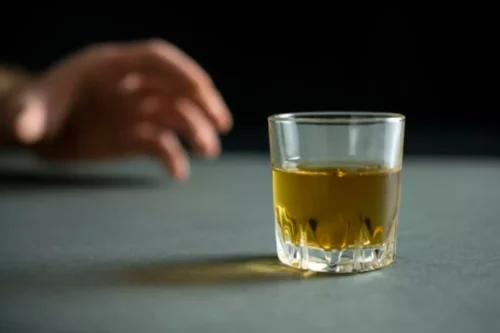
This cycle of emotional eating and alcohol use can result in weight gain and other health issues. This imbalance can lead to overeating and cravings for high-calorie foods, contributing to weight gain. Alcohol consumption can contribute to the development of metabolic syndrome by increasing abdominal fat, raising blood sugar levels, and negatively impacting cholesterol and triglyceride levels. Regular alcohol consumption can lead to health conditions that cause weight gain, among other issues. Alcohol has seven calories per gram, but this doesn’t factor in the drink size, added mixers like tonic water or soda, or how many drinks you consume during a meal. These extra calories can quickly add up, especially if you prefer mixed drinks.
Popular in Food & Drink
Alcohol does not cause weight gain the same way eating a donut does. It impacts our decision-making, lowers our metabolism, produces additional stress, and traps us in an unhealthy cycle of binge eating and lounging. Cortisol is the stress hormone in your body responsible for the “fight or flight” response.
Mental health

Plus, most alcoholic beverages have a lot of energy but little nutritional value, which is where the term ‘empty calories’ comes from. But will drinking any alcohol prevent you from losing any unwanted fat? You can strike a balance if you’re looking to lose weight while still enjoying an occasional drink with friends. Discover how protein influences weight loss and muscle growth, and explore practical tips for maintaining a healthy protein intake. Different types of alcoholic drinks vary in calorie content, with some being higher than others.

Medication-assisted weight loss with a future focus
The following quiz is called the AUDIT, which is short for Alcohol Use Disorders Identification Test. It’s used by medical professionals to assess your risk for alcohol dependence. All of these can lead to long-term weight gain and contribute to the bloating and digestive issues that cause weight gain after a night of drinking. Still, these factors do contribute to a longer-term connection between alcohol and weight gain. The reason for this is unclear, although it’s been suggested that wine drinkers have healthier, more balanced diets compared to beer and spirit drinkers (7, 36). Overall, it’s thought that the more you drink, the higher your risk of gaining weight and developing a beer belly (8, 19).
Interferes with fat-burning
- When you stop drinking, your body may replace one habit with another, so weight loss isn’t guaranteed.
- Opt for low-calorie options like light beer, and skip mixed drinks with a lot of liqueur, juice, and syrup.
- These can affect several bodily systems and increase the risks of health conditions such as cancer, heart disease, and stroke.
- This is because your body cannot store alcohol, so any food that is in your system while you consume alcohol will be put on hold.
- In excess, alcohol consumption may cause adverse effects on your body, leading to weight gain.
- Future research must consider the other important factors that may influence the link between alcohol and obesity, some of which are discussed below.
In fact, 52% of obese men have levels does alcohol make you gain weight of testosterone at the low end of the normal range (34). This plant is known to be very high in phytoestrogens, plant compounds that can mimic the action of the female sex hormone estrogen in your body (9). The main types of beer include pale ale, stout, mild, wheat beer and the most popular beer, lager. The different brew styles are made when brewers vary the grains, brewing times and flavorings they use.

Healthy Pumpkin Spice Lattes: Your Guide to a Blood-Sugar-Friendly PSL
You may or may not be surprised to hear that alcohol consumption can significantly affect https://ecosoberhouse.com/article/how-to-build-alcohol-tolerance-improve-your-alcohol-tolerance-now/ your weight, but not necessarily in the way you might think. Your liver plays an important role in metabolizing proteins, carbohydrates and fats so your body can use them — but if given the choice, your liver would rather burn off alcohol than fat. Even if you think you are “burning off” all the extra calories you drank last night by hopping on the treadmill for an hour or skipping out on dessert, it’s not quite as simple as that. Although we need cortisol, it becomes unhealthy when cortisol levels are too high for too long.

- Prospective studies have looked at the association between alcohol intake and adiposity gain in various populations, with follow-up periods ranging from several months to 20 years 4, 30, 31.
- That’s an additional 2,000-3,000 calories of fatty, salty, nutritionally poor food sitting in your stomach, which is still reeling from the 4,000+ nighttime calories you crammed into it less than 12 hours ago.
- The effects of alcohol on opioid, serotonergic, and GABAergic pathways in the brain all suggest the potential to increase appetite 62–65.
- The strength of a beer depends on the amount of alcohol it contains, which is measured as alcohol by volume (ABV).
- This habit not only keeps the calories in check but also assists your body in metabolizing alcohol more efficiently.
Force yourself to choose nutrient-dense food, lots of water, and get moving – even if it’s just a walk for fresh air. If you want to fight that post-drinking bloat and digestive distress, one of the best things to do is get back on track as soon as possible. Interested in learning more about metabolic health and weight management?


